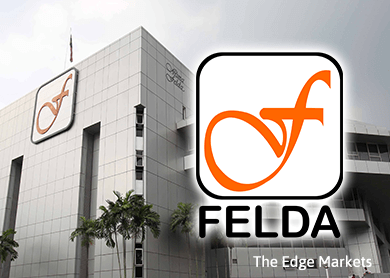
TUN Abdul Razak Hussein formed the Federal Land Development Authority (FELDA) to change the social and economic condition of the poverty-stricken rural community.
During his tenure as deputy prime minister and minister of rural development, Razak introduced the Rural Economic Development Plan, which was aimed at giving the rural poor a much-needed uplift.
FELDA has its origins in this master plan and was established on July 1, 1956, under the Land Development Ordinance (now Land Development Act) 1956. It was initially set up for the development of land and relocation with the objective of poverty eradication through the cultivation of cash crops.
The first settlement financed by FELDA was located in Air Lanas, Kelantan, and saw the relocation of 400 settlers over 1,680ha in March 1957. The settlers, the majority of whom were bumiputeras, were picked from poor rural areas with priority given to those who had no land.
They were assigned 4ha to 6ha of land to cultivate either rubber or oil palm and paid wages until their crops matured.
In the beginning, FELDA’s role was only to act as an adviser and the dispenser of loans from the federal government to the state governments. Though politically correct, this policy was deemed ineffective as it resulted in very slow land development.
Thus in 1960, FELDA was directed to manage all the land schemes under the state boards and take over the whole process of land development in the country, including the economic, social and political aspects. This produced the desired results.
By 1990, 114,400 households had been resettled on some 500,000ha. In the same year, FELDA stopped creating new settlements and became a statutory body that could generate its own income from its diversified businesses as the state governments re-designated agricultural land for industrial and commercial use.
FELDA slowly diverted from its original objective and branched out into economic ventures that were totally unrelated to land resettlement, such as milling, marketing, property and transport.
It then launched a number of private corporate entities, such as Koperasi Permodalan FELDA Malaysia Bhd (KPF) and Felda Holdings Bhd (FHB).
KPF’s job was to offer FELDA settlers an assortment of financial services and protect their well-being while FHB undertook the authority’s commercial activities.
Later, Felda Global Ventures Holdings Sdn Bhd was set up for the group’s international businesses while Felda Investment Corp (FIC) was established as an investment arm to undertake business activities that were non-plantation-related to boost contributions to the settlers.
On June 28, 2012, despite the protest of KFP members, Felda Global Ventures Holdings Bhd was listed on the Main Market of Bursa Malaysia in a RM9.93 billion initial public offering. FGV was the second largest IPO in the world that year after Facebook Inc.
Dubbed the world’s largest crude palm oil producer and Malaysia’s second largest palm oil refiner, FGV is the third largest palm oil company in the world by planted acreage.
As at its IPO, FGV controlled about 500,000ha that were managed by 112,600 FELDA settlers and another 355,864ha of leased land in Malaysia alone.
With the RM4.5 billion proceeds raised via the IPO, FGV has been on a spending spree, increasing its acreage and assets not just locally but also internationally.
To date, it has increased its acreage to 917,123ha via acquisitions in Indonesia and Malaysia. It has also acquired a 51% stake in FHB from KPF for RM2.2 billion, making the former a wholly-owned subsidiary.
In April 2013, it purchased a biodiesel refinery in Kuantan Port for RM35 million from Mission Biotechnologies Sdn Bhd. Its latest proposed acquisitions of a 37% stake in PT Eagle High Plantations Tbk and a 95% stake in its sugar operations for US$746 million or RM2.8 billion are its biggest since its IPO.
FELDA’s unit FIC has made several strategic non-plantation investments in the past few years. In March, it announced the opening of the first Malaysian restaurant in Jeddah, Saudi Arabia and appointed Felda D’Saji Sdn Bhd to operate the 122-seat restaurant in the city’s exclusive commercial hub.
Last December, the investment arm was in the spotlight for the acquisition of Grand Plaza Kensington in London for RM330 million in a bid to diversify its assets. The purchase was made to complement FELDA’s existing property in Bayswater, London — Grand Plaza Serviced Apartments.
Also last year, FIC took over property developer Encorp Bhd by acquiring a controlling 49.45% stake for RM239.72 million from major shareholders Lavista Sdn Bhd and Pegang Impian Holdings Sdn Bhd via separate conditional sale and purchase agreements.
In November 2013, it increased its stake in Iris Corp Bhd by 6.71% to 26.71% at 26 sen apiece, emerging as the company’s biggest shareholder. Currently, FIC has a 25.31% stake in Iris Corp.
Iris, which specialises in the manufacture of identification cards, electronic payment systems, and agriculture and environmental solutions, first saw FIC emerge as a substantial shareholder in August 2013 when it subscribed for 394.908 million Iris shares via a private placement at 28 sen apiece.
This article first appeared in The Edge Malaysia Weekly, on June 22 - 28, 2015.
Save by subscribing to us for your print and/or digital copy.
P/S: The Edge is also available on Apple's AppStore and Androids' Google Play.